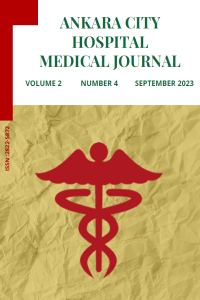Abstract
An Ounce of Prevention, a Pound of Passion: Unveiling Medical Students’ Affinity for Family and Community Medicine in Spain
Abstract
We have read with both interest and surprise the study published by Akyon1 et al. in this journal. Although the motivations of students seem to be aligned in Turkey, United States, Canada, and Germany; we firmly believe that the career choices of residents who opt for Family Medicine in Spain are driven by factors beyond personal reasons. In our country, the caregiver burden and job precarity in the public health sector are especially pronounced among professionals in this specialty.
As the authors acknowledge, every country has its unique circumstances. Unfortunately, the organization of primary healthcare centers in Spain often hampers young doctors from achieving schedules that allow them sufficient family time, thus complicating work-life balance, particularly with child rearing. The intense workload, coupled with the unpredictable hours, makes this a significant issue within the Family Medicine specialty in Spain. This concern is aligned with findings by Dyrbye et al.2, who reported that poor work-life balance and burnout are common among
physicians and may affect their specialty choice. Hence, the motivations of Family Medicine doctors correlate more with the discipline-related factors outlined in the article.
The vocation of service and the desire to make a positive impact on the lives of others are strong motivations for medical students choosing Family and Community Medicine.3 Establishing long-term relationships with patients and their families allows for a more personalized and patient-centered approach. Medical students who aspire to make a difference in vulnerable communities are drawn to this specialty. Serving in underserved areas allows them to address healthcare disparities and contribute to improving the health outcomes of disadvantaged populations.
Family and Community Medicine offers a comprehensive approach to healthcare, covering all stages of life and focusing on disease prevention and health promotion. Medical students are attracted to the opportunity to provide care throughout the lifespan and play a role in preventive medicine. Unveiling Family medicine vocations in Spain 263 Contrary to common isconceptions, Family and Community Medicine encounters a wide range of pathologies and clinical cases. Medical students appreciate the diversity of situations encountered in primary care, which allows them to develop clinical and diagnostic skills across various medical areas. These factors reflect global trends as noted by Puertas et al,4 who highlighted the universal importance of these factors in specialty choice. Indeed, the influence of the educational environment cannot be underestimated in guiding the career trajectory of medical students. The pedagogical approach towards Family Medicine in Spain may not be optimally geared towards attracting young minds. As Bland et al.5 have noted, the hidden curriculum in medical schools, marked by the values, norms, and practices that are transmitted to students in subtle, often unspoken ways, can significantly sway students’ specialty preferences. Consequently, an enhanced emphasis on Family
Medicine within medical curriculums might be a strategy worth considering to increase vocations in this specialty. By promoting the unique aspects of this specialty, including its patient-centered approach, and comprehensive care, we can inspire more medical students to consider Family and Community Medicine as a fulfilling and impactful career choice.
Details
| Primary Language | English |
|---|---|
| Subjects | Traditional, Complementary and Integrative Medicine (Other) |
| Journal Section | Letter To The Edıtor |
| Authors | |
| Publication Date | October 2, 2023 |
| Published in Issue | Year 2023 Volume: 2 Issue: 4 |


